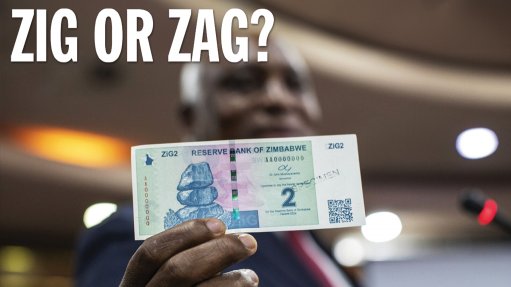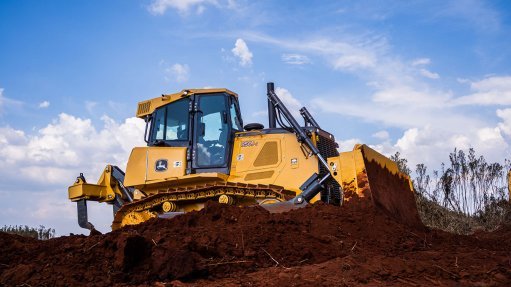Sasol advises of capacity reductions, further credit downgrades
Although JSE-listed chemicals company Sasol is permitted to operate during South Africa’s lockdown period, ending April 16, it has advised that some plants will be operated at lower capacity, or even shut down, owing to lower product offtake during this time.
The company explains that some intermediate chemicals will be re-directed to the production of products where demand is not impacted, to the extent possible.
“The Covid-19 situation is highly dynamic and with infection rates continuing to increase in many countries, there is a risk of interruptions to production, construction and associated supply chains, along with a potential impact on demand and product pricing in some sectors.
“Shareholders are therefore advised that this could impact on Sasol’s earnings for the 2020 financial year. The impact on the business, suppliers and customers is being continuously evaluated and an update will be provided in the third financial quarter business performance metrics report,” Sasol states.
On the plus side, lower demand for some products will be offset by the increased demand for sanitiser alcohols. Sasol has formulated a special blend of alcohols to address increasing demand and will expedite the production and availability of these critical products locally to help safeguard the health of South Africans.
Sasol is continuously working with government to ensure its business continuity and uninterrupted supply of fuels and chemicals, as well as to help combat the spread of the Covid-19 disease in the country.
Meanwhile, Sasol says its North American operations, including construction of the Lake Charles Chemicals Project, continues uninterrupted as a result of an exemption made by the Louisiana government, despite a stay-at-home order having been issued for the state.
Sasol’s European, Asian and Mozambican assets are also operating as normal.
OIL & CREDIT STRATEGIES
Sasol also notes that the credit rating agencies, Standard & Poor’s Global Ratings (S&P) and Moody’s have updated their credit rating assessments of Sasol in light of the impact of the Covid-19 pandemic on global growth and the volatility in the oil price.
S&P has announced that it has revised Sasol’s long- and short-term issuer credit ratings on Sasol to BB/B from BBB-/A-3, and its issue ratings on its debt to BB from BBB-.
“Given recent oil price declines and the intense economic disruption likely to accompany the coronavirus pandemic, we expect further weakness in commodity chemical pricing following the decline in demand and supply chain constraints which will affect chemicals and energy suppliers.
"Consequently, we have lowered our earnings forecasts for Sasol materially, taking into account management's guidance and the potential for prices to decline and stay lower for longer,” S&P says.
This while Moody’s also announced that it has revised Sasol’s Ba1 rating to Ba2 and placed the company under review for a downgrade.
Moody’s states that South Africa’s 21-day lockdown to contain the outbreak creates further uncertainty on near-term financial performance, while an extended lockdown beyond the original timeline could further affect performance.
The cost of some of Sasol’s floating rate debt is partially linked to its credit rating and the revised rating profile will therefore result in an increase in finance costs from existing facilities of about $10-million a year.
S&P points out that it will consider lowering the rating further if funds from operations (FFO) to debt ratio weakened to and stayed below 12%, which could result, for example, from earnings reductions owing to lower oil or chemical prices or demand disruptions, operational setbacks, increased capital expenditure, or higher debt.
“We could revise the outlook to stable if there is clear evidence that our adjusted FFO-to-debt metric for Sasol will remain sustainably above 12% on average, and the risk of a liquidity event that would lead to us lowering our liquidity assessment to less than adequate abated.
“We could raise the rating if FFO-to-debt returned to levels sustainably above 20%, driven by a significantly improved operating environment or material deleveraging, which would most likely be as a result of asset sales or an equity raise, or both,” S&P states.
Sasol has developed a comprehensive response strategy, which is being executed to mitigate the impact of Covid-19 and a lower oil price as far as practically possible.
This includes a cash conservation programme, an accelerated and expanded asset disposal and partnering programme, as well as a potential rights issue of up to $2-billion, which remains subject to the progress of other initiatives.
Sasol maintains a long-term commitment to achieving an investment-grade credit rating.
Further, the company says progress has been made on its hedging programme, reducing Sasol’s exposure to any further short-term pricing downside.
Oil hedges are in place for about 80% of synfuels for the fourth quarter of the 2020 financial year’s production, at about $32/bl. Crude oil hedging execution will continue for the next 12 months, while rand/dollar and ethane hedging programmes have been executed for the next 12-month period.
Sasol has liquidity of about $2.5-billion to provide an additional buffer against short-term volatility.
Comments
Press Office
Announcements
What's On
Subscribe to improve your user experience...
Option 1 (equivalent of R125 a month):
Receive a weekly copy of Creamer Media's Engineering News & Mining Weekly magazine
(print copy for those in South Africa and e-magazine for those outside of South Africa)
Receive daily email newsletters
Access to full search results
Access archive of magazine back copies
Access to Projects in Progress
Access to ONE Research Report of your choice in PDF format
Option 2 (equivalent of R375 a month):
All benefits from Option 1
PLUS
Access to Creamer Media's Research Channel Africa for ALL Research Reports, in PDF format, on various industrial and mining sectors
including Electricity; Water; Energy Transition; Hydrogen; Roads, Rail and Ports; Coal; Gold; Platinum; Battery Metals; etc.
Already a subscriber?
Forgotten your password?
Receive weekly copy of Creamer Media's Engineering News & Mining Weekly magazine (print copy for those in South Africa and e-magazine for those outside of South Africa)
➕
Recieve daily email newsletters
➕
Access to full search results
➕
Access archive of magazine back copies
➕
Access to Projects in Progress
➕
Access to ONE Research Report of your choice in PDF format
RESEARCH CHANNEL AFRICA
R4500 (equivalent of R375 a month)
SUBSCRIBEAll benefits from Option 1
➕
Access to Creamer Media's Research Channel Africa for ALL Research Reports on various industrial and mining sectors, in PDF format, including on:
Electricity
➕
Water
➕
Energy Transition
➕
Hydrogen
➕
Roads, Rail and Ports
➕
Coal
➕
Gold
➕
Platinum
➕
Battery Metals
➕
etc.
Receive all benefits from Option 1 or Option 2 delivered to numerous people at your company
➕
Multiple User names and Passwords for simultaneous log-ins
➕
Intranet integration access to all in your organisation

















